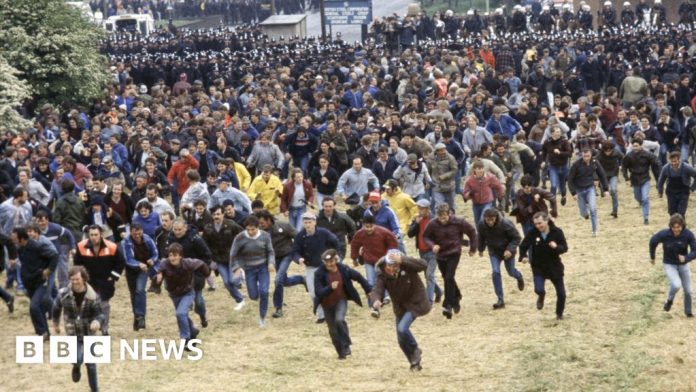BBC News, Yorkshire
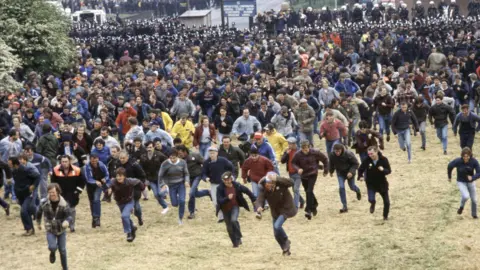 Getty Images
Getty ImagesA national inquiry will be held into one of the most violent days of the year-long miners’ strike in the 1980s, the government has announced.
The inquiry would look into the clash that involved police and miners outside the Orgreave coking plant in Rotherham on 18 June 1984.
The incident, which became known as the Battle of Orgreave, involved miners from across Britain converging on the plant to try to disrupt deliveries, but they were met with force by thousands of police officers.
Joe Rollin, from the Orgreave Truth and Justice Campaign (OTJC), who has been calling for an inquiry for 13 years, said he was “cautiously elated” by the news.
Home Secretary Yvette Cooper, who announced the inquiry, said those affected by the confrontation had been left with “unanswered questions for over 40 years”.
She said the inquiry had been put “in our Labour manifesto last year and that’s what we’re now delivering”.
The inquiry would be chaired by the Bishop of Sheffield, the Rt Rev Dr Pete Wilcox, and would look at both the events of the day and the aftermath, Ms Cooper said.
That would include the eventually failed criminal prosecutions of 95 miners and what Ms Cooper described as the “discredited evidence” against them.
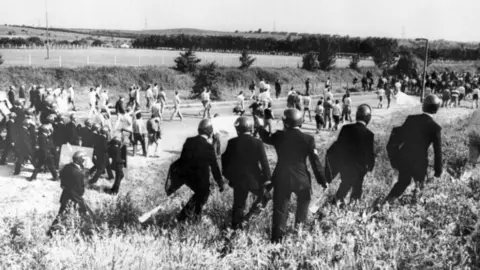 PA Media
PA MediaThe events at Orgreave took place during the strike which was sparked after the National Coal Board announced in March 1984 that it was shutting 20 UK collieries it said were unprofitable.
That would result in the loss of at least 20,000 jobs.
More than three quarters of the country’s 187,000 miners went on strike in response to the announcement.
On the day of the clashes in June, the striking miners wanted to stop lorries carrying coke to fuel the Scunthorpe steel furnaces as they thought disrupting production would help win their fight against the closures and job losses.
But violence involving police and the miners left more than 100 picketers and officers injured at the coking plant.
A total of 95 men who had been picketing at the plant were arrested and faced trial on riot and unlawful assembly charges.
However, the case against them collapsed in court due to allegations that South Yorkshire Police had falsified evidence.
It is still considered one of the most violent episodes in British industrial history.
Many of those involved have said that even 40 years on, they wanted answers about what happened and why.
In 2016, the then Home Secretary Amber Rudd rejected calls for an inquiry into events at Orgreave, saying it would not be in the public interest.
She said even though miners who were involved gave “forceful accounts” about its lasting impact on them, “ultimately there were no deaths or wrongful convictions”.
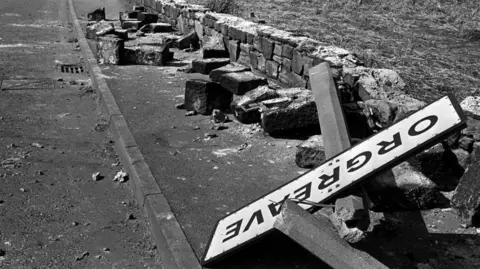 PA Media
PA MediaThe Rt Rev Wilcox said he did not “underestimate the weight of expectation or the significance of the task” ahead of him and the inquiry.
“I look forward to engaging with stakeholders in the coming weeks over the draft terms of reference, and to working with the government to identify experts to support me on the independent panel.
“I expect the panel to begin its work in the autumn, and we will endeavour to deliver an inquiry which is thorough and fair, and which will uncover what happened at Orgreave as swiftly as possible.”
Following the announcement of the inquiry, Mr Rollin said he and other members of the Truth and Justice Campaign were “really happy and we want to get to the truth”.
“It’s been a long slog these last 13 years and we can’t quite believe it,” he said.
“We want all the people who live around the country in mining communities that have been so badly treated to have a smile on their faces.
“This has been a hard-fought thing and thank you to everyone who’s supported us.”
Kevin Horne, a miner arrested at Orgreave, called for a “quick and thorough inquiry with a tight timescale so surviving miners can at last obtain the truth and justice they have been waiting for”.
“It is important to remember that some of the miners attacked and arrested there are now dead and many others are old and ill,” he said.
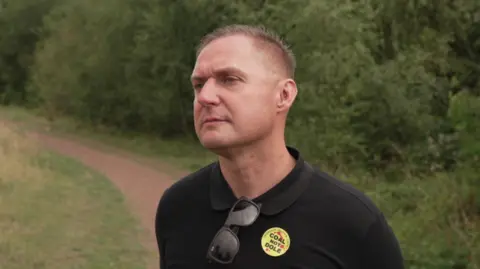
Kate Flannery, secretary of the Orgreave Truth and Justice Campaign, said the announcement of an inquiry was “really positive news”.
It should be given “the necessary powers to fully investigate all the aspects of the orchestrated policing at Orgreave, and have unrestricted access to all relevant information”, she said.
Chris Kitchen, general secretary of the National Union of Mineworkers (NUM), said the events at Orgreave and throughout the strike had “destroyed the trust between the police and mining communities even now, 41 years later”.
“It is vital this trust is won back, and the NUM believe this inquiry will go some way to rebuilding that trust,” he added.
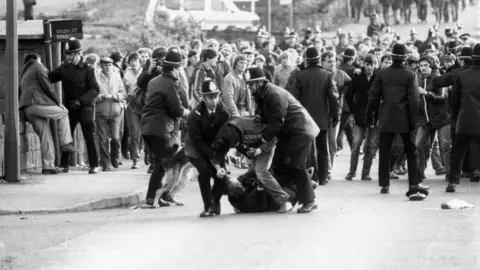 Getty Images
Getty ImagesRotherham Labour MP Sarah Champion said former miners, their families and campaigners had worked “tirelessly” to secure an inquiry.
“I have stood shoulder-to-shoulder with campaigners over the years as they were led to believe an inquiry was about to be commissioned, only to have the rug pulled out from under them.
“They have been let down time and time again, and I am proud that our Labour government is good to its word and will finally uncover the truth.”
South Yorkshire’s Mayor Oliver Coppard said the announcement of the inquiry was a “landmark moment for justice and accountability”.
“We owe it to the miners, their families, and our communities to ensure that the events of Orgreave are finally understood,” he said.
Meanwhile, South Yorkshire Police said it would “fully cooperate with the inquiry in a bid to help those affected find answers”.

Get our flagship newsletter with all the headlines you need to start the day. Sign up here.

